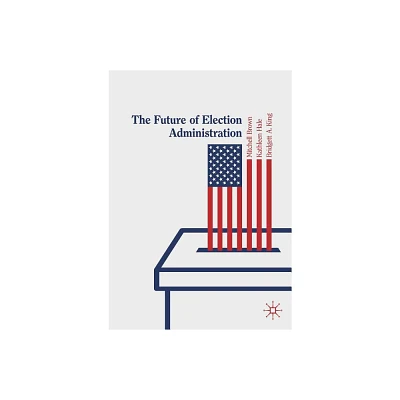Home
The Help America Vote Act and Election Administration: Overview and Issues
Loading Inventory...
Barnes and Noble
The Help America Vote Act and Election Administration: Overview and Issues
Current price: $19.75


Barnes and Noble
The Help America Vote Act and Election Administration: Overview and Issues
Current price: $19.75
Loading Inventory...
Size: OS
*Product Information may vary - to confirm product availability, pricing, and additional information please contact Barnes and Noble
The deadlocked November 2000 presidential election focused national attention on previously obscure details of election administration. Even before the U.S. Supreme Court had resolved the election in December, numerous bills to address the failings of the election system were introduced in Congress and state legislatures. The response at the federal level was the Help America Vote Act (HAVA; P.L. 107-252), enacted in 2002. HAVA created the Election Assistance Commission (EAC), established a set of election administration requirements, and provided federal funding, but did not supplant state and local control over election administration. Several issues have arisen or persisted in the years since HAVA was enacted. This report provides background information about HAVA and its provisions, the EAC, funding for the agency and for state programs to improve elections, and a number of enduring election administration issues. Some observers have criticized the EAC for being too obtrusive, or for being slow, ineffectual, or even unnecessary. Others believe that the agency is an important resource for improving the administration of elections and has been hampered by budgetary constraints and difficulties in the nomination process for commissioners. The agency has been without commissioners since 2011, although nominations to fill the four commissioner seats have been sent to the Senate. HAVA promoted the use of electronic voting systems to address problems associated with lever and punchcard systems and to facilitate voting by persons with disabilities. However, the electronic systems, especially those that recorded votes directly into a computer's memory, raised concerns about security and reliability. In response, many states enacted requirements for voter-verifiable paper ballot records. HAVA's limited voter-identification provisions, agreed to after considerable debate, did not resolve the controversy over whether more stringent identification requirements are needed to prevent voter fraud, or whether such requirements would create an unacceptable risk of disenfranchising legitimate voters. Finally, while HAVA's voter-registration requirement may have improved that process, some have subsequently argued that more automated registration systems are needed to make further improvements.


















